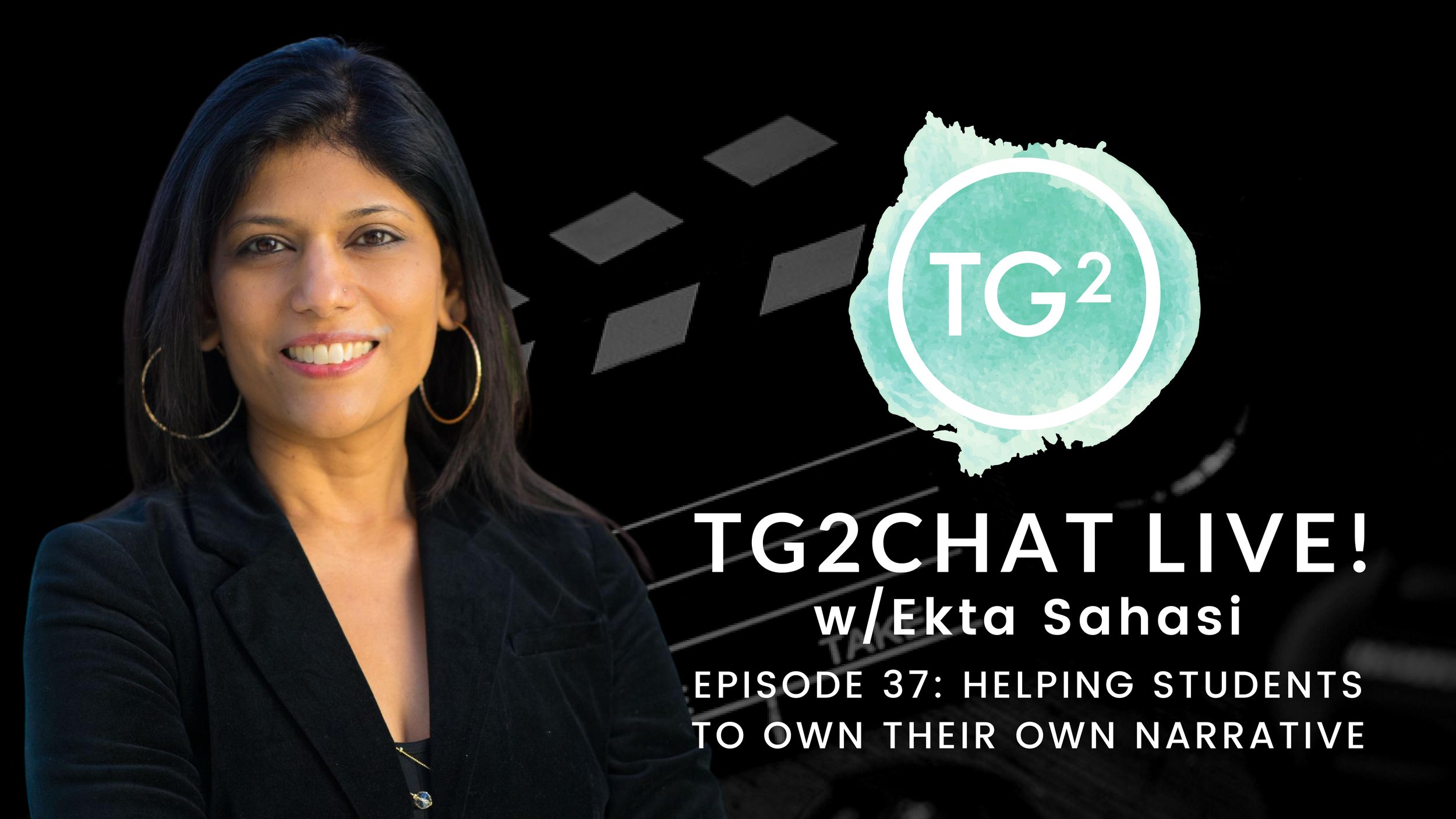“Nothing personal, but…”: Technology, Learning, and Assessment
From a distance, personalization seems like a good thing. After all, a building block of good instruction is to know your students. But there is also a darker side. The focus on personalization in educational technology often comes at the expense of the kinds of relationships we know are important for learning. The personal learning espoused by edtech entrepreneurs often leans towards extreme individualization, and a limited view of knowledge and learning. Author Barry Fishman asks, Can we do better?
Leveling up w/Fabiola Torres
Arthur Chiaravalli interviews Fabiola Torres, an online Ethnic Studies professor and Certified Faculty Developer at Glendale Community College. During the pandemic, she's led nationwide workshops and courses on applying equity-minded methods such as culturally responsive teaching in the online environment, humanizing online teaching and learning and ungrading practices.
What Would I Say to a Student’s Face?
Feedback is a key component of learning. Feedback can also evoke emotional responses from students, enhancing or undermining relationality and motivation. Unfortunately, the design and delivery of assessment feedback frequently does not consciously address this socio-emotional dimension. Ameena L. Payne shares how teachers are using video feedback to build trust and humanize the feedback process.
The Mastery Transcript w/Mike Flanagan
Lisa Wennerth interviews Mike Flanagan, CEO of the Mastery Transcript Consortium (MTC), a growing group of high schools creating a digital high school transcript that opens up opportunity for each and every student—from all backgrounds, locations, and types of schools—to have their unique strengths, abilities, interests, and histories fostered, understood, and celebrated.
Communication: The Key to Success
Regardless of whether we care about grades, they are still an obstacle we must address. Going gradeless requires that teachers be especially proactive and open in their communication. In addition to adopting instruction and assessment practices that are accessible and equitable, it is equally important we convey these approaches so they are easily understood by all interested parties.
No Longer a Data Entry Clerk
Prior to going gradeless, math teacher Andrew Burnett felt like a “data entry clerk posing as a teacher.” Now, he has ditched the data entry in favor of meaningful and timely feedback. This shift has led to greater personal satisfaction and a marked improvement in his students’ ability to understand concepts as well as to retain that understanding.
Capturing Learning as It Happens w/Mike Rutherford
Student learning lives in the back and forth interactions between students and teachers. Mike Rutherford designed gotLearning to better capture these stories in his own classroom, providing one place communicate and document student learning.
Capturing Learning as it Happens
Creating and maintaining portfolio evidence as the learning happens results in richer, more nuanced representations of learning over time. When students and teachers capture learning as it happens, it is no longer an add-on reporting method after a performance task is completed.
Helping Students Own Their Own Narrative w/Ekta Sahasi
Ekta Sahasi is the founder of spikeview, a global pre-professional portfolio platform for students and young adults. She is reinventing how Gen-Z represent themselves online, build meaningful networks, and forge a pathway to success.
Tell Me About You, Not About Your Grades
Students using spikeview view their learning as a journey. They see where they have been, can explore what’s next, and make informed decisions on where not to spend time. It’s not a snapshot of one class or one reporting period. It’s life, as they know it.
Notch Up Your Nitpicking with Replace/With Pairs
In my nitpicking, I spent far too much time bogged down in reiterating past teaching. In my marginal notes and technology-enhanced comments, I was giving a low-quality version of the lesson I’d given weeks earlier. I needed to notch up my nitpicking.
Wad-Ja-Get? w/Barry Fishman
Arthur Chiaravalli interviews Barry Fishman, professor of Learning Technologies in the University of Michigan School of Information and School of Education. Barry pens the new introduction to the 50th-anniversary edition of Wad-Ja-Get, one of the earliest critical examinations of the effects of grading on student attitudes toward learning.












